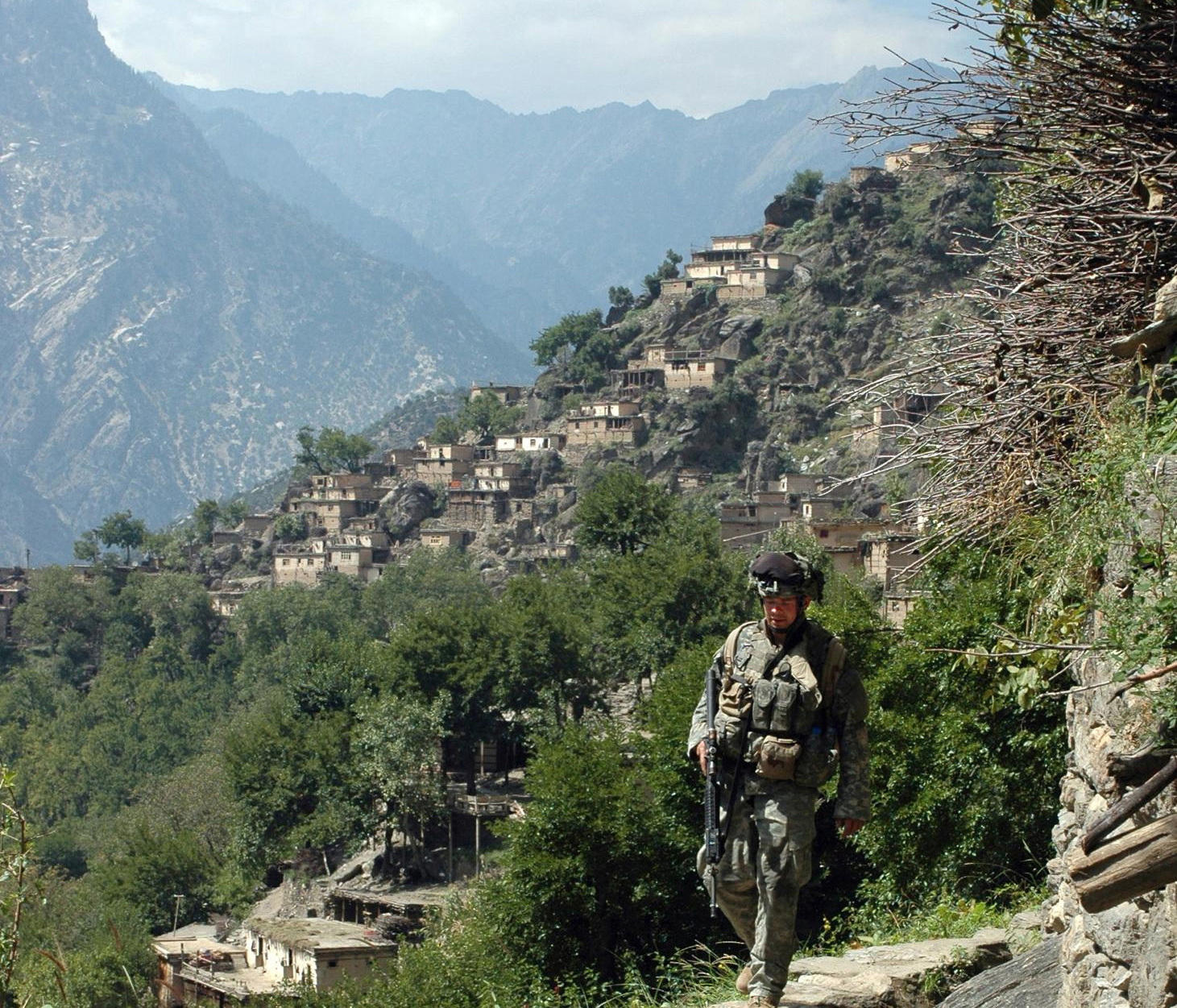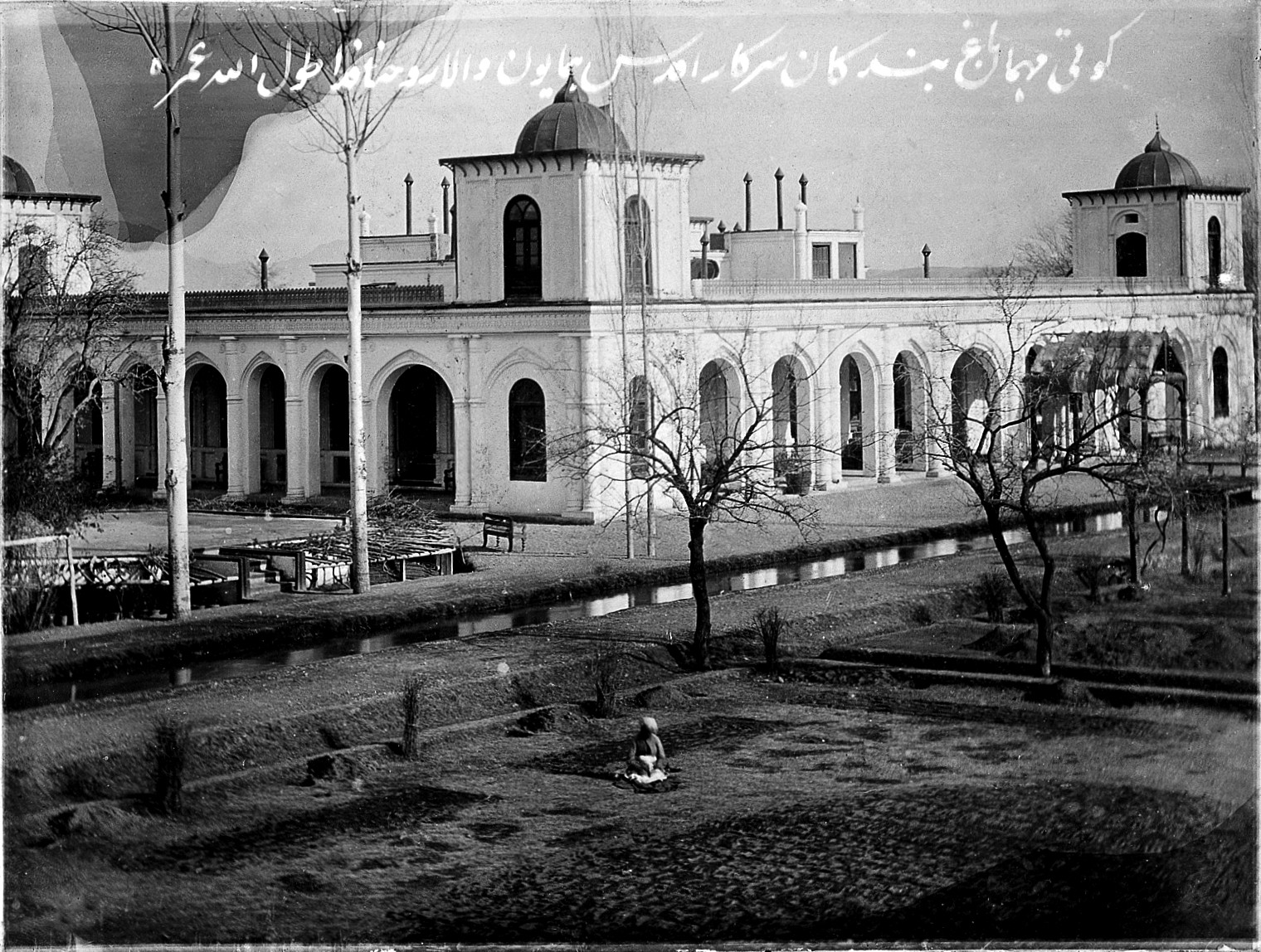|
Kafiristan
Kāfiristān, or Kāfirstān ( ps, کاپیرستان, prs, کافرستان), is a historical region that covered present-day Nuristan Province in Afghanistan and Chitral District of Pakistan. This historic region lies on, and mainly comprises, the basins of the rivers Alingar, Pech (Kamah), Landai Sin and Kunar, and the intervening mountain ranges. It is bounded by the main range of the Hindu Kush on the north, Pakistan's Chitral District to the east, the Kunar Valley in the south and the Alishang River in the west. Kafiristan took its name from the enduring kafir (non-Muslim) Nuristani inhabitants who once followed a distinct form of ancient Hinduism mixed with locally developed accretions; they were thus known to the surrounding predominantly Sunni Muslim population as Kafirs, meaning "disbelievers" or "infidels". They are closely related to the Kalash people, a fiercely independent people with a distinctive culture, language and religion. The area extending from mode ... [...More Info...] [...Related Items...] OR: [Wikipedia] [Google] [Baidu] |
Kafiristan
Kāfiristān, or Kāfirstān ( ps, کاپیرستان, prs, کافرستان), is a historical region that covered present-day Nuristan Province in Afghanistan and Chitral District of Pakistan. This historic region lies on, and mainly comprises, the basins of the rivers Alingar, Pech (Kamah), Landai Sin and Kunar, and the intervening mountain ranges. It is bounded by the main range of the Hindu Kush on the north, Pakistan's Chitral District to the east, the Kunar Valley in the south and the Alishang River in the west. Kafiristan took its name from the enduring kafir (non-Muslim) Nuristani inhabitants who once followed a distinct form of ancient Hinduism mixed with locally developed accretions; they were thus known to the surrounding predominantly Sunni Muslim population as Kafirs, meaning "disbelievers" or "infidels". They are closely related to the Kalash people, a fiercely independent people with a distinctive culture, language and religion. The area extending from mode ... [...More Info...] [...Related Items...] OR: [Wikipedia] [Google] [Baidu] |
Nuristanis
The Nuristanis, formerly known as Kafiristanis, are an ethnic group native to the Nuristan Province of northeastern Afghanistan and Chitral District of northwestern Pakistan. Their languages comprise the Nuristani branch of Indo-Iranian languages. The Nuristanis reside mainly in the northeast of Afghanistan and northwest of Pakistan; between the Pashtun tribes of Kunar, Kalash in Pakistan's Chitral, and Tajiks of Badakhshan in the north. In the mid-1890s, after the establishment of the Durand Line when Afghanistan reached an agreement on various frontier areas to the British Empire for period of time, Emir Abdur Rahman Khan conducted a military campaign in Kafiristan and followed up his conquest with forced conversion of the Kafirs to Islam; the region thenceforth being known as ''Nuristan'', the "Land of Light". Before their conversion, the Nuristanis practiced a form of ancient Hinduism. Non-Muslim religious practices endure in Nuristan today to some degree as folk customs ... [...More Info...] [...Related Items...] OR: [Wikipedia] [Google] [Baidu] |
Kalash People
The Kalasha (Kalasha: کالؕاشؕا, romanised: ''Kaḷaṣa)'', or Kalash, are an Indo-Aryan indigenous people residing in the Chitral District of Khyber-Pakhtunkhwa province of Pakistan. The Kalash population in Pakistan numbers only in a few thousands, making them one of the smallest ethnic minorities in Pakistan. They are considered unique among the people of Pakistan.The kalaṣa of kalaṣüm They are also considered to be Pakistan's smallest , and tr ... [...More Info...] [...Related Items...] OR: [Wikipedia] [Google] [Baidu] |
Nuristan Province
Nuristan, also spelled as Nurestan or Nooristan (Dari: ; Kamkata-vari: ), is one of the 34 provinces of Afghanistan, located in the eastern part of the country. It is divided into seven districts and is Afghanistan's least populous province, with a population of around 167,000. Parun serves as the provincial capital. Nuristan is bordered on the south by Laghman and Kunar provinces, on the north by Badakhshan province, on the west by Panjshir province. The origins of the Nuristani people traces back to the 4th century BC. Some Nuristanis claim being descendants of the Greek occupying forces of Alexander the Great. It was formerly called Kafiristan ( ps, ) ("Land of the Infidels") until the inhabitants were forcibly converted from an animist religion; a form of ancient Hinduism infused with local variations, to Islam in 1895, and thence the region has become known as Nuristan ("land of illumination", or "land of light"). The region was located in an area surrounded by Buddhist ... [...More Info...] [...Related Items...] OR: [Wikipedia] [Google] [Baidu] |
Kata People
The Katir (also spelled Kati, Kator and Kata) are a Nuristani tribe in Afghanistan and Pakistan. Etymology The Katir a 'tɘor Kata Kafir group was ''numerically'' the most dominant group of the Siah-Posh (Persian "Black Wearer/Clothed") tribes. They owned approximately forty villages in the Bashgul valley and numbered about 40,000 (1890). The upper part of the Bashgul Valley of Nuristan (Afghanistan) is known as Katirgul. It is called Lutdeh in Chitrali and ''Kantozi'' in Pashto. According to George Scott Robertson, the Katir ''Siah-Posh'' clan settled in Katirgul valley was called Kamtoz (or ''Camtoz'') in Pashto and Lutdehhchis in Chitrali (''The Kafirs of the Hindu Kush, p 71''). But American investigator ''Richard Strand's'' website suggests that the name ''Kamtoz/Kamtozi'' may apply to all Katirs of the former ''Siah-Posh'' group, including the Ramguli and Kulam Katirs' Alternative names for Kamtoz are ''Camtozi'', ''Kantozi''. Despite their fiercely independent nat ... [...More Info...] [...Related Items...] OR: [Wikipedia] [Google] [Baidu] |
Hindu Kush
The Hindu Kush is an mountain range in Central and South Asia to the west of the Himalayas. It stretches from central and western Afghanistan, Quote: "The Hindu Kush mountains run along the Afghan border with the North-West Frontier Province of Pakistan". into northwestern Pakistan and far southeastern Tajikistan. The range forms the western section of the ''Hindu Kush Himalayan Region'' (''HKH''); to the north, near its northeastern end, the Hindu Kush buttresses the Pamir Mountains near the point where the borders of China, Pakistan and Afghanistan meet, after which it runs southwest through Pakistan and into Afghanistan near their border. The eastern end of the Hindu Kush in the north merges with the Karakoram Range.Karakoram Range: MOUNTAINS, ASIA Encyclopædia Britannica Towards its s ... [...More Info...] [...Related Items...] OR: [Wikipedia] [Google] [Baidu] |
Hindukush
The Hindu Kush is an mountain range in Central and South Asia to the west of the Himalayas. It stretches from central and western Afghanistan, Quote: "The Hindu Kush mountains run along the Afghan border with the North-West Frontier Province of Pakistan". into northwestern Pakistan and far southeastern Tajikistan. The range forms the western section of the ''Hindu Kush Himalayan Region'' (''HKH''); to the north, near its northeastern end, the Hindu Kush buttresses the Pamir Mountains near the point where the borders of China, Pakistan and Afghanistan meet, after which it runs southwest through Pakistan and into Afghanistan near their border. The eastern end of the Hindu Kush in the north merges with the Karakoram Range.Karakoram Range: MOUNTAINS, ASIA Encyclopædia Britannica Towards its s ... [...More Info...] [...Related Items...] OR: [Wikipedia] [Google] [Baidu] |
Kafir
Kafir ( ar, كافر '; plural ', ' or '; feminine '; feminine plural ' or ') is an Arabic and Islamic term which, in the Islamic tradition, refers to a person who disbelieves in God as per Islam, or denies his authority, or rejects the tenets of Islam. The term is often translated as "infidel", "pagan", "rejector", " denier", "disbeliever", "unbeliever", "nonbeliever", and "non-Muslim". The term is used in different ways in the Quran, with the most fundamental sense being "ungrateful" (toward God). ''Kufr'' means "unbelief" or "non-belief", "to be thankless", "to be faithless", or "ingratitude". The opposite term of ''kufr'' is '' īmān'' (faith), and the opposite of ''kāfir'' is '' muʾmin'' (believer). A person who denies the existence of a creator might be called a '' dahri''. ''Kafir'' is sometimes used interchangeably with ''mushrik'' (, those who practice polytheism), another type of religious wrongdoer mentioned frequently in the Quran and other Islamic wo ... [...More Info...] [...Related Items...] OR: [Wikipedia] [Google] [Baidu] |
Kafir
Kafir ( ar, كافر '; plural ', ' or '; feminine '; feminine plural ' or ') is an Arabic and Islamic term which, in the Islamic tradition, refers to a person who disbelieves in God as per Islam, or denies his authority, or rejects the tenets of Islam. The term is often translated as "infidel", "pagan", "rejector", " denier", "disbeliever", "unbeliever", "nonbeliever", and "non-Muslim". The term is used in different ways in the Quran, with the most fundamental sense being "ungrateful" (toward God). ''Kufr'' means "unbelief" or "non-belief", "to be thankless", "to be faithless", or "ingratitude". The opposite term of ''kufr'' is '' īmān'' (faith), and the opposite of ''kāfir'' is '' muʾmin'' (believer). A person who denies the existence of a creator might be called a '' dahri''. ''Kafir'' is sometimes used interchangeably with ''mushrik'' (, those who practice polytheism), another type of religious wrongdoer mentioned frequently in the Quran and other Islamic wo ... [...More Info...] [...Related Items...] OR: [Wikipedia] [Google] [Baidu] |
Alishang
Alishang is a village, river and a fertile valley of Laghman Province, and also the district headquarters of Mihtarlam District, in eastern Afghanistan. It lies about 40 km northwest of Jalalabad. The fertile Alishang valley drained by the Alishang River, which is described as "contracted", has an abundance of mounds and caves. Is surrounded by Badrow hills. Alladad Khan castle is located close to the village. The Alishang River valley has a number of villages on the way from Jalalabad, such as Kargai, Tajak, Tigadee and Safees along its river course, which in some reaches is very narrow and can be forded by dismounting from the horse's back. Geography Alishang village is on the banks of Alishang River, which is also called the Nadjil River. It rises in the mountains of Nadjil on the southern slopes of Hindukush mountains and after traversing 90 miles joins the Alinghar River in Alishang village. The valley and the river are both named as Alishang. Similarly, Alinghar Riv ... [...More Info...] [...Related Items...] OR: [Wikipedia] [Google] [Baidu] |
Afghanistan
Afghanistan, officially the Islamic Emirate of Afghanistan,; prs, امارت اسلامی افغانستان is a landlocked country located at the crossroads of Central Asia and South Asia. Referred to as the Heart of Asia, it is bordered by Pakistan to the Durand Line, east and south, Iran to the Afghanistan–Iran border, west, Turkmenistan to the Afghanistan–Turkmenistan border, northwest, Uzbekistan to the Afghanistan–Uzbekistan border, north, Tajikistan to the Afghanistan–Tajikistan border, northeast, and China to the Afghanistan–China border, northeast and east. Occupying of land, the country is predominantly mountainous with plains Afghan Turkestan, in the north and Sistan Basin, the southwest, which are separated by the Hindu Kush mountain range. , Demographics of Afghanistan, its population is 40.2 million (officially estimated to be 32.9 million), composed mostly of ethnic Pashtuns, Tajiks, Hazaras, and Uzbeks. Kabul is the country's largest city and ser ... [...More Info...] [...Related Items...] OR: [Wikipedia] [Google] [Baidu] |
Abdur Rahman Khan
Abdur Rahman Khan GCSI (Pashto/Dari: ) (between 1840 and 1844 – 1 October 1901) was Emir of Afghanistan from 1880 to his death in 1901. He is known for uniting the country after years of internal fighting and negotiation of the Durand Line Agreement with British India. Abdur Rahman Khan was the first child and only son of Mohammad Afzal Khan, and grandson of Dost Mohammad Khan, founder of the Barakzai dynasty. Abdur Rahman Khan re-established the writ of the Afghan government after the disarray that followed the second Anglo-Afghan war. He became known as ''The Iron Amir'' because his government was a military despotism. This despotism rested upon a well-appointed army and was administered through officials subservient to an inflexible will and controlled by a widespread system of espionage. The nickname, ''The Iron Amir'', is also associated due to his victory over a number of rebellions by various tribes who were led by his relatives. One source says that during his reign t ... [...More Info...] [...Related Items...] OR: [Wikipedia] [Google] [Baidu] |







